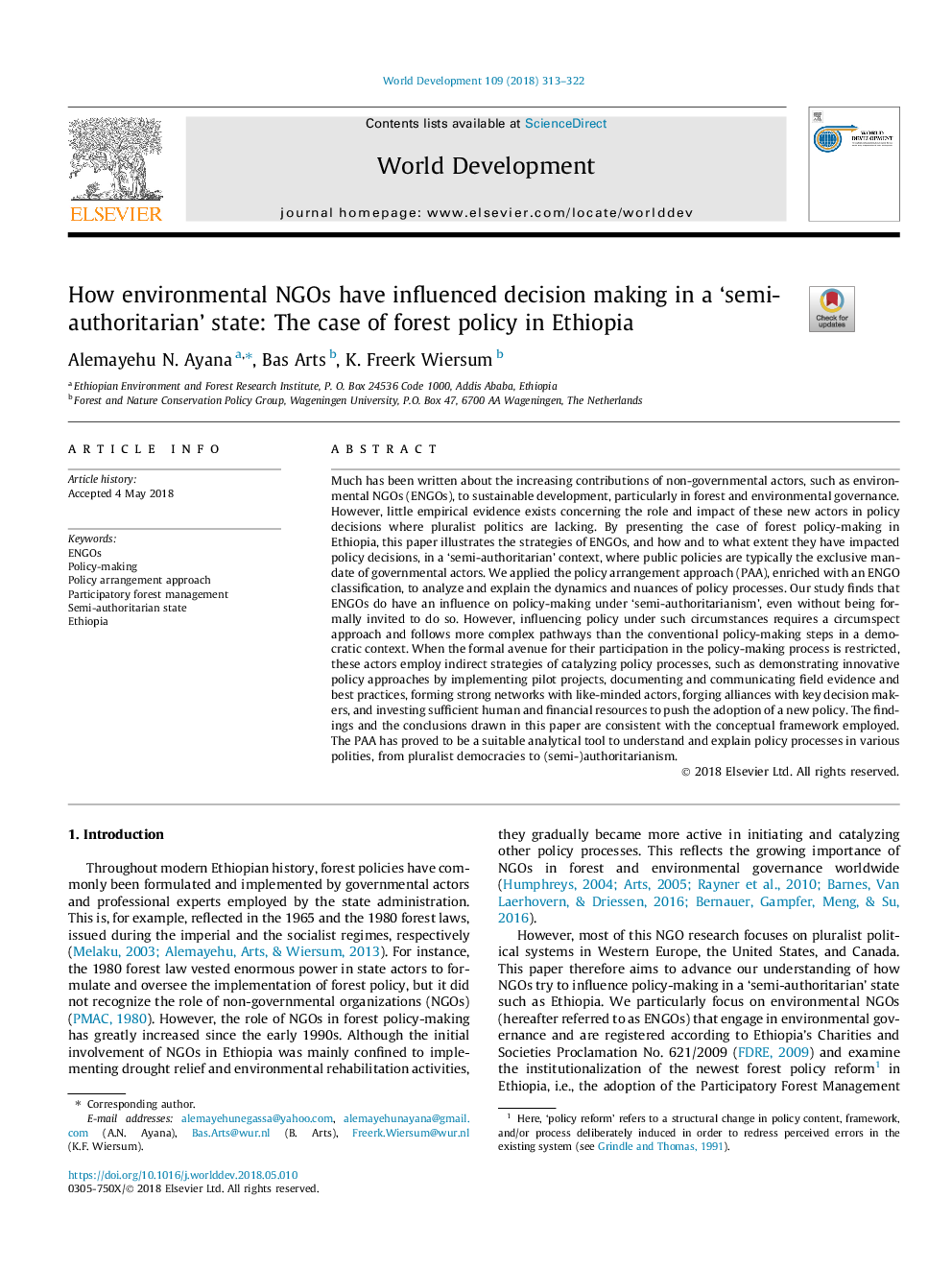| Article ID | Journal | Published Year | Pages | File Type |
|---|---|---|---|---|
| 7391732 | World Development | 2018 | 10 Pages |
Abstract
Much has been written about the increasing contributions of non-governmental actors, such as environmental NGOs (ENGOs), to sustainable development, particularly in forest and environmental governance. However, little empirical evidence exists concerning the role and impact of these new actors in policy decisions where pluralist politics are lacking. By presenting the case of forest policy-making in Ethiopia, this paper illustrates the strategies of ENGOs, and how and to what extent they have impacted policy decisions, in a 'semi-authoritarian' context, where public policies are typically the exclusive mandate of governmental actors. We applied the policy arrangement approach (PAA), enriched with an ENGO classification, to analyze and explain the dynamics and nuances of policy processes. Our study finds that ENGOs do have an influence on policy-making under 'semi-authoritarianism', even without being formally invited to do so. However, influencing policy under such circumstances requires a circumspect approach and follows more complex pathways than the conventional policy-making steps in a democratic context. When the formal avenue for their participation in the policy-making process is restricted, these actors employ indirect strategies of catalyzing policy processes, such as demonstrating innovative policy approaches by implementing pilot projects, documenting and communicating field evidence and best practices, forming strong networks with like-minded actors, forging alliances with key decision makers, and investing sufficient human and financial resources to push the adoption of a new policy. The findings and the conclusions drawn in this paper are consistent with the conceptual framework employed. The PAA has proved to be a suitable analytical tool to understand and explain policy processes in various polities, from pluralist democracies to (semi-)authoritarianism.
Related Topics
Social Sciences and Humanities
Economics, Econometrics and Finance
Economics and Econometrics
Authors
Alemayehu N. Ayana, Bas Arts, K. Freerk Wiersum,
